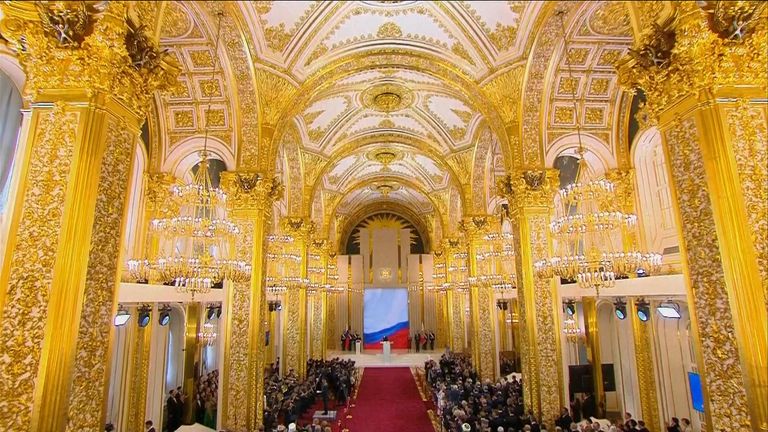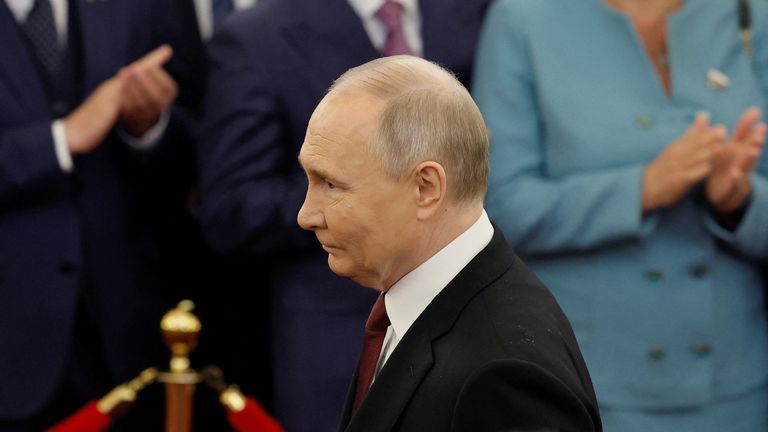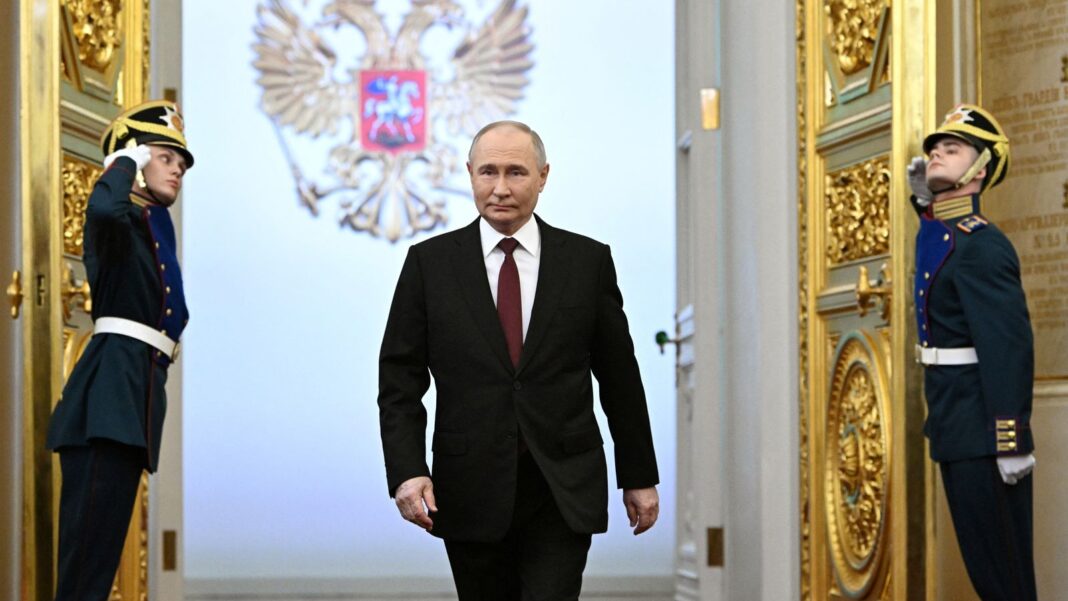Vladimir Putin has thanked soldiers “fighting for our motherland” in Ukraine – as he was sworn in as Russian president for a fifth time.
At the ceremony inside the gilded Grand Kremlin Palace, Mr Putin placed his hand on the Russian Constitution and vowed to defend it as a crowd of hand-picked dignitaries looked on.
Tuesday’s inauguration marks the start of another six years at the top for Mr Putin, 71.
Pic: Kremlin.ru/Reuters
Russian President Vladimir Putin places his hand on the Constitution as he takes the oath
He is already the Kremlin’s longest-serving leader since Joseph Stalin, having been in power for nearly two-and-a-half decades – 20 years as president, four as prime minister.
By the end of this term, only Catherine the Great will be ahead of him – she ruled Russia way back in the 18th century.
This content is provided by X, which may be using cookies and other technologies.
To show you this content, we need your permission to use cookies.
You can use the buttons below to amend your preferences to enable X cookies or to allow those cookies just once.
You can change your settings at any time via the Privacy Options.
Unfortunately we have been unable to verify if you have consented to X cookies.
To view this content you can use the button below to allow X cookies for this session only.
His new term doesn’t expire until 2030, when he will be constitutionally eligible to run again.
When he succeeded Boris Yeltsin in 1999, Russia was emerging from economic collapse.
Under his leadership, most notably since the 2022 invasion of Ukraine, the country has become a pariah state that threatens global security, reliant on China, Iran and North Korea for support.

Vladimir Putin
Russia’s enormous advantages in resources has gradually turned the tide in Ukraine in Moscow’s favour, but both sides have been suffering heavy casualties.
Following his widely-anticipated re-election in March, Mr Putin suggested that a confrontation between NATO and Russia is possible, and he declared he wanted to carve out a buffer zone in Ukraine to protect his country from cross-border attacks.

Pic: Reuters
With the country’s economy now on a war footing, analysts say that, with another term in office secured, the Kremlin could take the unpopular steps of raising taxes to fund the war and pressure more men to join the military.
The repression that has characterised his time in office continued when his greatest political foe, opposition leader Alexei Navalny, died in an Arctic penal colony in February.
Other prominent critics have either been imprisoned or have fled the country, and even some of his opponents abroad fear for their security.
Laws have been enacted that threaten long prison terms for anyone who discredits the military.
The Kremlin also targets independent media, rights groups, LGBTQ+ activists and others who do not adhere to what Mr Putin has emphasised as Russia’s “traditional family values”.
An artillery salute marked the end of the official presidential inauguration.
As he left the palace as the Russian national anthem played and a round of applause erupted from those in the audience.
Sky’s international affairs editor Dominic Waghorn said Mr Putin “has taken a country that was emerging from communism and economic collapse towards reform and reintegration into the international community, and he’s turned it in a pariah state threatening global security while he and his kleptocracy have stolen billions.
“In his inauguration speech, Putin said Russia stands united [but] an estimated 900,000 Russians have voted with their feet and left the country since his invasion of Ukraine.”







